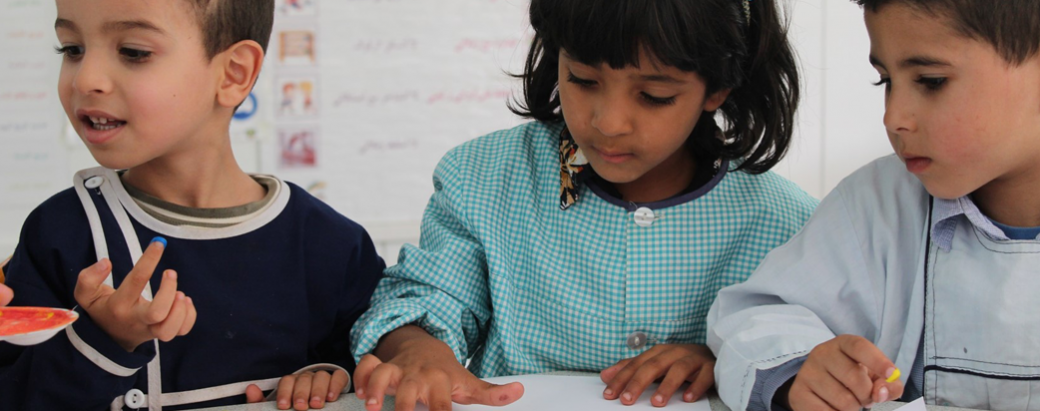
About the Project
This project is one of the 2018 WISE Awards finalists.
The ANEER program is based on a model of community pre-schooling aimed at children between the age of four and six. The model aims to impact the entire environment of children including schools and parents in order to create the most favorable conditions for a successful education. The ANEER model is integrated and targets children, mothers, and the larger community. This model has been developed in partnership with UNICEF and takes into account international best practices in early childhood education.
Context and Issue
Morocco has historically faced challenges in providing adequate pre-school education for all, with children from disadvantaged backgrounds less likely to have equal access to these opportunities. Although the proportion of children attending pre-school in Morocco increased from 51% to 58% between 2007 and 2012 (the most recent year for which robust data is available), great regional disparities in access persist. The reasons for low pre-school attendance in Morocco are numerous, but two major factors are child labor and the lack of educational attainment among parents.
Solution and Impact
ANEER provides free pre-school programs for children aged 4-5 in rural regions of Morocco. It also educates parents on the importance of pre-school, enables adult literacy, and builds local capacity to transfer the operation of pre-schools to the community after a two-year startup period. ANEER has educated around 6000 children with a 100% transition rate to primary school. In 2017, ANEER delivered 16 schools to be run by the local community. Thus, ANEER was able to implement the sustainable component of the program. Although rural pre-school programs are not a new innovation globally, they are unique within the Moroccan and MENA context. ANEER’s secondary focus on adult literacy is also relatively unique.
ANEER is distinctive within Morocco and the broader MENA region, where there are relatively few initiatives focused on providing early years education in rural regions. Those that exist are mostly one-time projects that do not have the community involvement and parental education aspects that ANEER has. ANEER has also strong internal systems for reporting, monitoring, and remedying identified problems. Key areas for improvement are identified quickly and an improvement action plan is created. Finally, ANEER’s build-operate-transfer model is relatively more unique, however, and allows Fondation Zakoura to scale without being over-encumbered with operational aspects.
Mothers are trained in children development, early learning activities and hygiene. This allows the mothers to actively participate in their children’s education outside of school. Moreover, it raises parents’ awareness of the importance of education which supports their children’s continued schooling. Five to six awareness sessions are offered to fathers to ensure their support; awareness modules are offered to the rest of the community on the importance of early childhood education. This mobilizes the community to help with the daily management of the pre-school units. Community involvement ensures a better integration of children within their environment and facilitates the transition to primary school.
Zakoura Foundation offers literacy classes to community members, especially mothers, who wish to learn to read and write. In the long run, this allows mothers to be able to follow their children’s education and support their participation in the local economy.
The local educators trained by the Zakoura Academy are in charge of the literacy classes. In parallel, Zakoura Foundation either creates or reinforces local associations in order to carry on the ANEER program once the two-year funding ends. The capacity building of local associations allows them to be actively involved and guarantees the sustainability of the program long after the funding period has ended. Zakoura Foundation transfers all the equipment and amenities to the local associations.
Future Developments
ANEER has created 8,000 pre-school seats since starting in 2015, with ~7000 students enrolled. The absentee rates for ANEER’s pre-school programs are 1-2%, with a dropout rate of only 1%. 100% of ANEER’s pre-school graduates continue to primary school. ANEER has two impact studies in the pipeline. The first is a study with UNICEF to evaluate how ANEER’s parental education programs are affecting attitudes and behavior towards pre-school education. The second is a randomized control study done in conjunction with J-PAL that will analyze how ANEER’s pre-school graduates perform in primary school relative to their peers.


